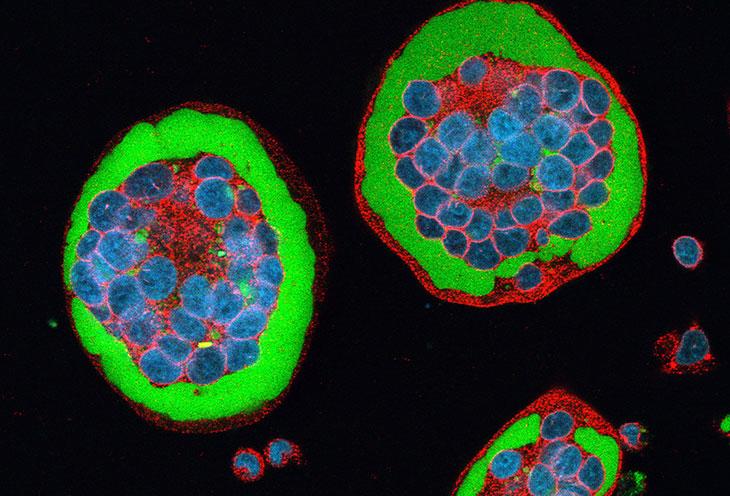A study to find an alternative vaccine for rinderpest virus (RPV), which could be used in place of the traditional live virus vaccine, has concluded that there is currently no usable alternative - with implications for global preparedness.
Rinderpest is one of only two viral diseases (the other being smallpox), that have been officially eradicated - a breakthrough in 2011 that The Pirbright Institute played a major role in achieving.
Scientists have been keen to find an alternative vaccine for RPV, as currently stocks of vaccine need to kept in preparation for the possible reappearance of the disease (whether through deliberate or accidental release), and that vaccine is itself a strain of RPV.
There are tight restrictions on the distribution of the live virus and this study, led by scientists at the Institute (published in The Journal of Virology), is expected to be the last permitted using live RPV, due to safety concerns.
Dr Michael Baron, now an Honorary Fellow of The Pirbright Institute, and a world leading expert in both RPV and peste des petits ruminants virus (PPRV), who led the study said: “Since RPV vaccine protects sheep and goats from PPRV, it was important to determine if the reverse was true, as this would provide a non-RPV vaccine for dealing with suspected outbreaks of rinderpest in the future".
In the study, cattle were vaccinated with wild-type PPRV, or either of the two established PPRV vaccine strains. All animals developed immune responses to the inoculated PPRV, but only the animals given wild-type PPRV were protected from RPV challenge. As a wild-type PPR virus would be too risky to use as a vaccine, and the safe strains of PPRV did not offer the required protection, this showed that PPRV vaccines cannot be used as a replacement for the RPV vaccine.
Dr Baron added: “This means that, for now, we have to stay with the status quo, where rinderpest vaccine needs to be kept as part of the international preparedness plan for a potential re-emergence of the disease”.
